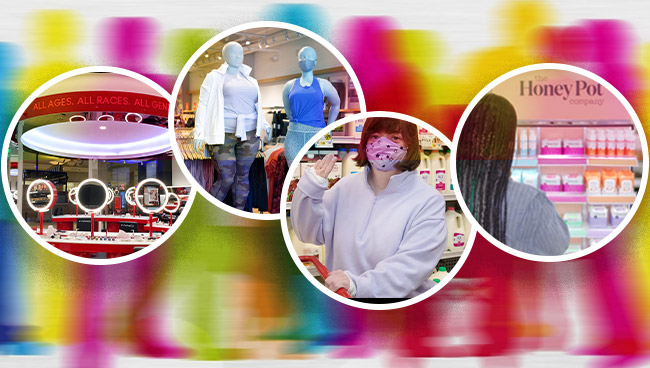Shoppers want to feel welcomed everywhere, and retail is not excluded. More consumers support brands that promote equality – and the louder, the better. WSL’s experts share their firsthand examples of brands and retailers doing just that, including Unilever, M.A.C and Trader Joe’s.
Shoppers are Equality Activists. How is Retail Reacting?
Those retailers and brands that exclude themselves from the inclusive movement risk losing a lot. One-third of shoppers have told us in our How America Shops® surveys that it’s more important to them now to buy products from retailers that support equality. And today, equality applies to more than race, age and gender. It extends to physical capabilities, financial brackets, body shape and cognitive needs.
As Terry Thomas, the chief customer officer at Unilever, told WSL CEO Wendy Liebmann in our Future Shop podcast, inclusion means recognizing all persons, individually, for who they are.
“How do people feel valued?” he said, describing Unilever’s approach. “Do they feel included? Are they truly championed and supported in a fashion that allows them to be included, not excluded?”
Unilever in fact has made diversity inclusion a performance metric of its CEO, Alan Jope. And it’s leaning into the effort in untraditional places. In addition to its Dove brand’s Project #ShowUs campaign, which showcases an all-encompassing image of beauty among women and non-binary individuals, its Dove Men+Care line is advocating parental leave for fathers so they can play greater roles in child rearing.
Here are a few other examples, gathered by our WSL retail explorers and experts:
M.A.C. Removes Beauty Boundaries
This beauty brand recognizes there are no barriers to looking good, as long as one feels good. As our President Candace Corlett has observed via our Virtual Retail Safari®, M.A.C.’s Innovation Lab in Queens, N.Y., shouts “inclusion” from above its central display table, with lighted, ticker-tape signage that declares all ages, all races and all genders are welcome. This is backed up by product – visitors can sync up their skin tones to a range of options, and they can do it digitally, for an easy, cleaner experience.
Trader Joe’s Sees Shopping Through Autistic Eyes
If you think shopping for groceries can be a chore – even stressful – imagine the experience from the perspective of someone with cognitive needs, such as those with autism. Trader Joe’s, recognizing that supermarket noise, lighting and other stimulants can be overwhelming to this customer base, is offering an app to ease the process. The supermarket chain is partnering with the maker of the MagnusCards app, which helps people with special cognitive needs learn life skills and live independently. As our Senior Consultant Joi Pratt described in her April 30 “What’s Up” email, Trader Joe’s is using the app to provide visual cues, step-by-step instructions and an optional audio enhancement.
At Athleta, Inclusivity Means All (Body) Types are Welcome
Everyone knows that people of all sizes exercise, so it’s time the makers of those form-fitting clothes did as well. Bravo to athleisure brand Athleta for welcoming all shoppers with extended sizing across 350 styles. Shoppers can find these extended sizes at its 200 stores, and they can see them in the display windows on mannequins in the many body shapes we come in. Athleta’s designers and tech experts worked with thousands of women for two years to engineer the lines, calling the effort part of its mission of inclusivity, by empowering women to lead active lifestyles.
Target Pledging $2 Billion to Black-Owned Business
Supporting shoppers of color begins with promoting suppliers that make the brands ethnic shoppers want. To this end, Target is adding products from more than 500 Black-owned businesses and is spending more than $2 billion with these companies. This effort caught the eye of WSL Director of Creative Services Maryann Javier, who grew up feeling her naturally curly hair was ignored at the retail shelf. Target, in addition to buying more from Black-owned companies, is providing resources to help these vendors grow, including a team “dedicated to providing vendors with ongoing support and assisting them in growing and successfully scaling their businesses in mass retail.” Target is doing this in part through an in-house, eight-week program for young companies called Target Forward Founders.”
Like everything else, it’s not enough for retailers to say they welcome all shoppers; they have to walk the talk with experiences that welcome all shoppers.
WSL Strategic Retail continually collects and analyzes proprietary How America Shops® research to advise brands and retailers on how to better advance their strategies. To learn more about how we can help your brand or retail innovations, visit us here.


